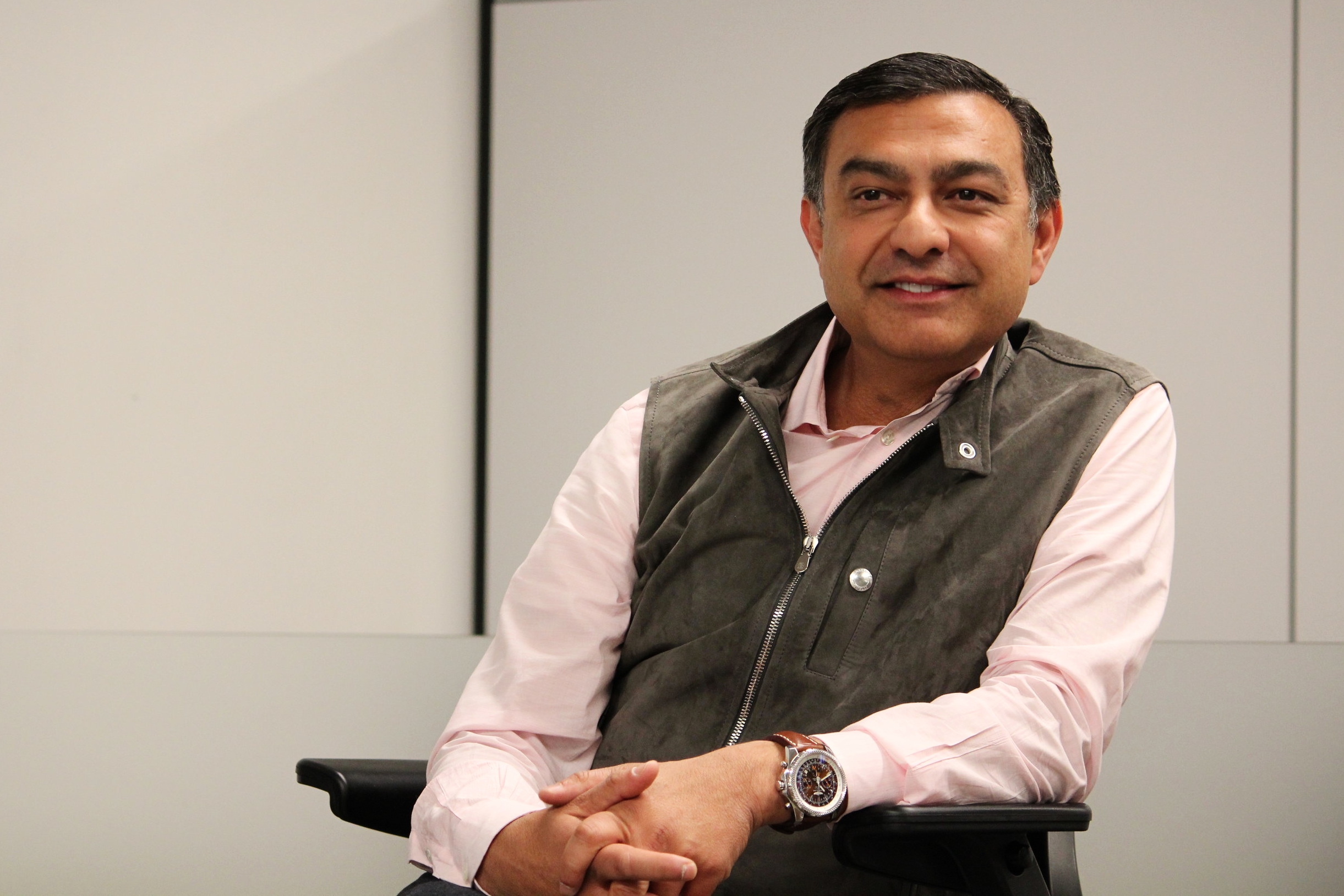Vic Gundotra looks to partner with Mayo on 'revolutionary' medical technology
During his freshman year at George Washington University, Vic Gundotra took a risk. Against his mother’s vehement objections, he dropped out of school to join a startup — a company now known worldwide as Microsoft. After 15 years with Microsoft, he transitioned to Google, where as the senior vice president of social, he oversaw the creation of Google Plus.
Now, decades after his career began, he’s found himself back to what he knows and loves best. Gundotra came out of retirement to become president and CEO of (you guessed it) a technology startup. Transitioning into the field of medical technology, Gundotra joined AliveCor in 2015 with the goal of revolutionizing health care.
Gundotra and AliveCor founder Dr. David Alfred came to the Mayo Business Accelerator Thursday for a moderated discussion — hosted by Collider — about the future of medical technology.
AliveCor’s latest FDA-approved project is the invention of a mobile electrocardiogram (ECG) monitor. Slightly larger than a stick of Extra gum, the device attaches easily to the back of a user’s phone. All you have to do is place your fingers on top of the two electrodes and it delivers an ECG reading to your smartphone.
“Even more importantly, for those of us who are not doctors and don’t know how to interpret the squiggly lines,” Gundotra said, “the software will give you an interpretation.”
In partnership with the Mayo Clinic, AliveCor is also furthering research to develop a method of using ECG technology to estimate serum potassium — a procedure that is currently only possible through blood analysis.
“It’s kind of a revolutionary idea that we are in the middle of developing in partnership with Mayo and I can tell you that that’s just the beginning [of the partnership],” Dr. Alfred said.
Dr. Alfred is excited for AliveCor to be in partnership with what he called “the best brand in global healthcare, a brand … that has been earned by 100 years of taking care of people.” He believes the two entities will be mutually beneficial in changing the way we approach medicine.
According to Gundotra, artificial intelligence (AI) is the future of healthcare technology. He said that the development of AI offers a unique opportunity to increase the accessibility and efficiency of healthcare tenfold.
“Yes, it’s amazing when your Tesla drives itself,” he said. “It’s amazing when your photos automatically recognize people, but it’s another level of amazing if AI can save your dad’s life.”
Of course any major breakthrough, like the one Alfred and Gundotra expect to see in healthcare, comes with a certain degree of uneasiness.
Gundotra explained the opposition to AI with an analogy.
“Which one of us would go out at night on a dark path and not take a flashlight?” he asked. “Of course we would take a flashlight. A flashlight is very useful. None of us get dramatic about it; none of us go ‘oh no, the flashlight is going to replace human sight. Our eyeballs are going away!’ Of course they’re not. They’re just a tool. AI is going to revolutionize medicine. It’s not going to replace doctors; it’s going to extend doctors’ sight.”
Gundotra and Alfred are at the forefront of what they predict to be a medical revolution. They are driving this technology forward with the hope of increasing “opportunities in healthcare, helping people engage and empowering them” to take control of their health.
Because for Gundotra and Alfred, self-driving cars are exciting, but nothing beats the peace of mind of accessible medical technology — and that’s what AliveCor hopes to deliver.
Written by contributor Madison Conte. A 2015 graduate of Mayo High School, Madison now studies journalism and political science at the University of Missouri. Follow her on Twitter.
Cover photo: Vic Gundotra speaking in Rochester / Madison Conte








